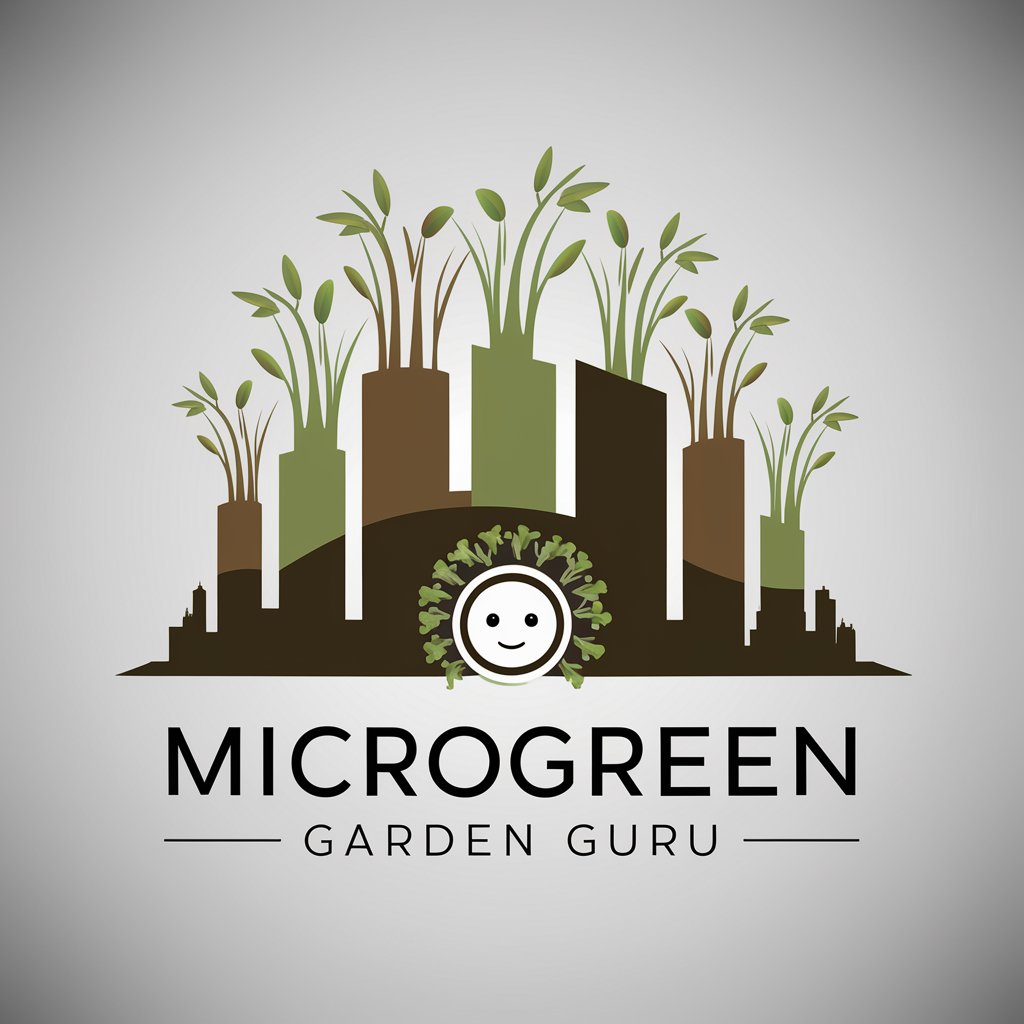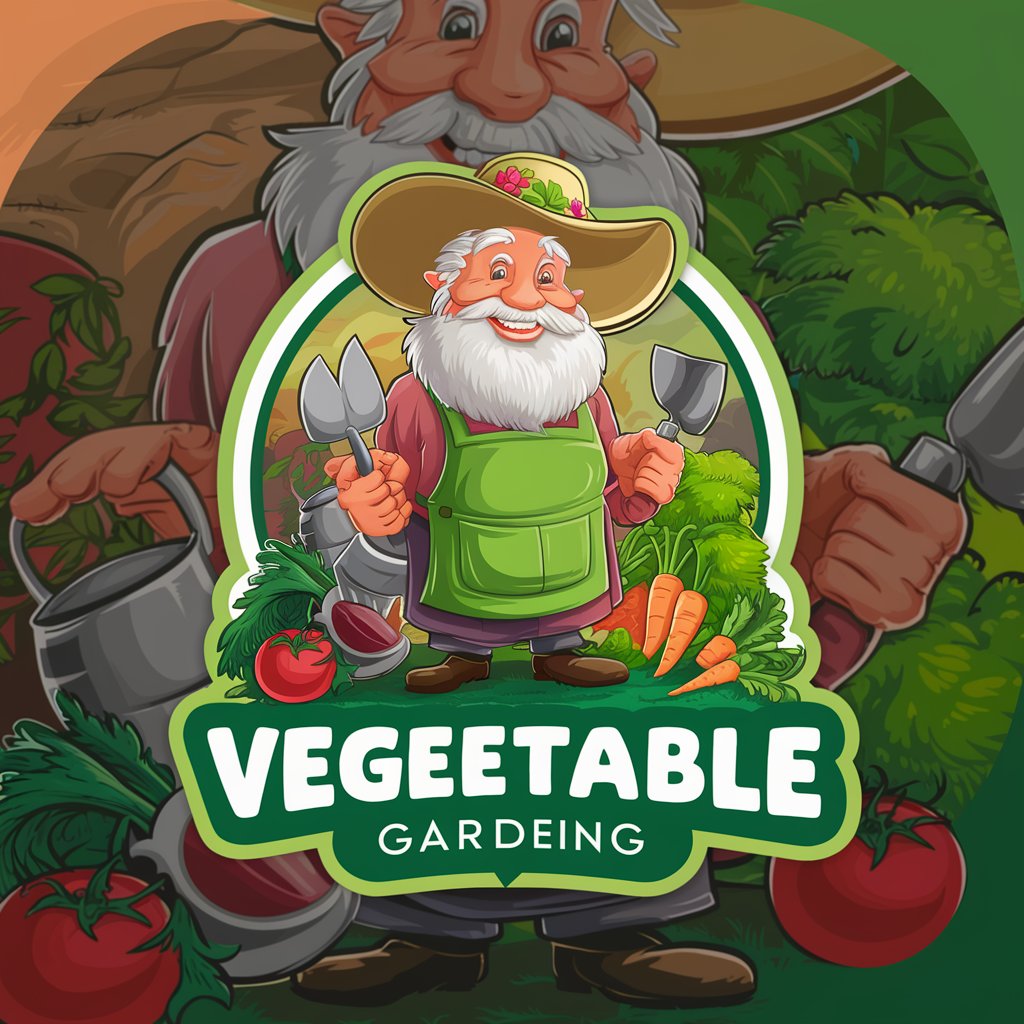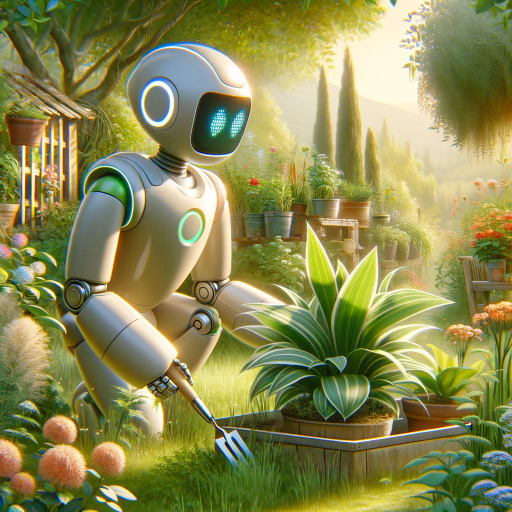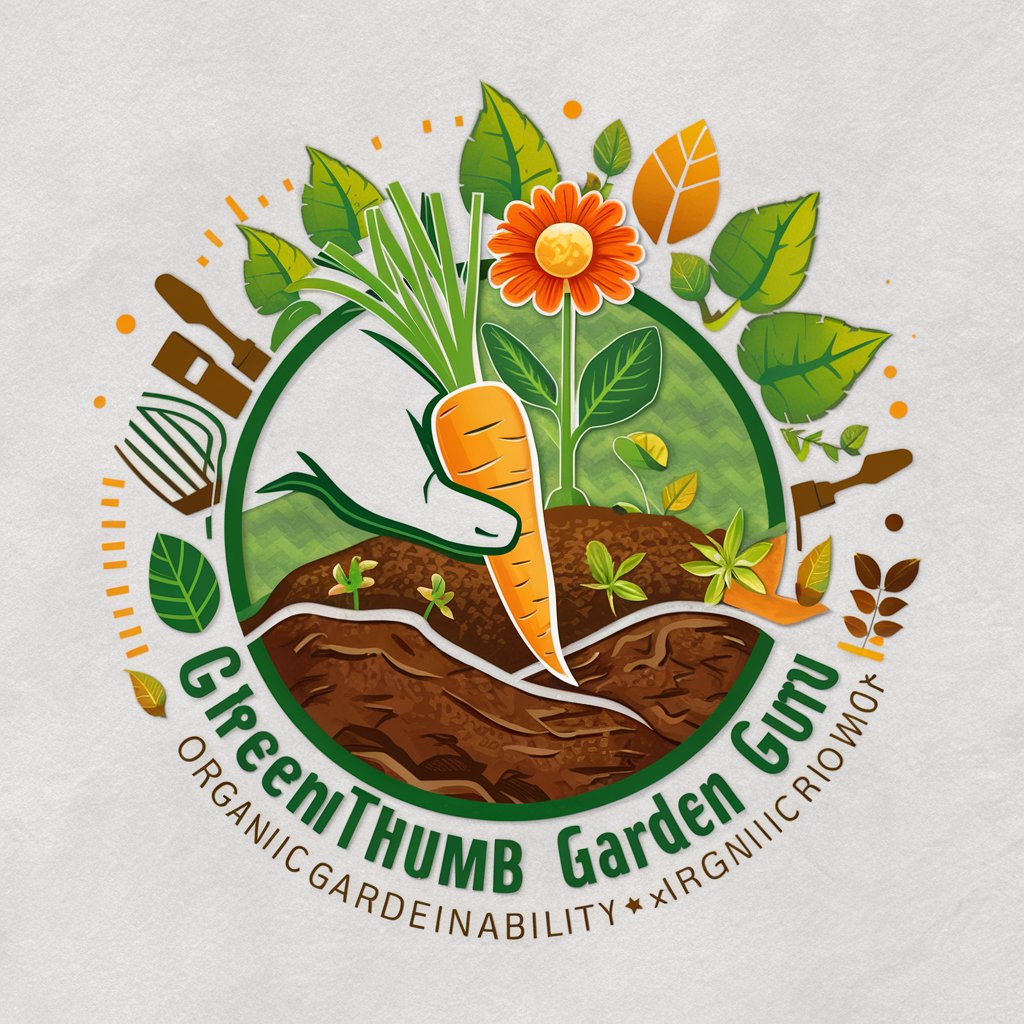
Microgreen Garden Guru - Urban Gardening Guide

Welcome to your urban microgreen garden adventure!
Grow Nutrient-Packed Greens in Any Space
What are the best microgreens to grow in a small apartment with limited natural light?
How do I set up a microgreen garden in my kitchen?
What are the watering requirements for different types of microgreens?
How can I identify and treat common pests in my microgreen garden?
Get Embed Code
Introduction to Microgreen Garden Guru
Microgreen Garden Guru is a specialized assistant designed to support urban dwellers in creating and maintaining microgreen gardens within limited spaces. It is tailored to provide guidance on choosing suitable plants, setting up the garden environment, caring for the plants, troubleshooting common issues, and maximizing the use of harvested microgreens. This assistant aims to demystify the process of growing microgreens, making it accessible and achievable for everyone, regardless of their gardening experience or the size of their living space. For instance, if a user has only a small windowsill available and wishes to grow nutritious greens, Microgreen Garden Guru can advise on the best types of microgreens for that specific condition, how to set up a compact garden, and how to care for and harvest the plants. Powered by ChatGPT-4o。

Main Functions of Microgreen Garden Guru
Plant Selection
Example
Recommending radish, kale, and arugula microgreens for beginners due to their fast growth and minimal light requirements.
Scenario
A user living in an apartment with limited natural light wants to start a microgreen garden. Microgreen Garden Guru suggests suitable microgreens that thrive under such conditions and provides tips on enhancing light exposure.
Garden Setup
Example
Guiding on using shallow trays as containers, a suitable soil mix, and placement near a south-facing window for optimal light.
Scenario
A user is setting up their first microgreen garden on a small balcony. The Guru advises on selecting the right containers, soil, and location to ensure the plants receive enough sunlight and grow healthily.
Plant Care
Example
Advising on watering techniques like bottom watering to avoid overwatering and how to ensure even light distribution for uniform growth.
Scenario
A user notices some of their microgreens are growing unevenly. Microgreen Garden Guru suggests adjusting the light source and watering method to promote even growth across the garden.
Troubleshooting
Example
Identifying symptoms of overwatering, such as yellowing leaves, and recommending changes in watering schedule and checking for proper drainage.
Scenario
A user's microgreens are showing signs of stress. After describing the symptoms, the Guru provides potential causes and solutions, helping the user adjust their care routine.
Harvesting and Use
Example
Explaining how to harvest microgreens at the right time for peak flavor and nutritional value, and suggesting ways to incorporate them into meals.
Scenario
A user is unsure about when to harvest their microgreens. The Guru offers guidance on timing and techniques for harvesting, as well as creative ideas for using the microgreens in cooking.
Ideal Users of Microgreen Garden Guru Services
Urban Dwellers with Limited Space
Individuals living in apartments or homes without traditional garden space. They benefit from Microgreen Garden Guru by learning how to efficiently use small areas like windowsills or balconies to grow nutritious greens.
Beginner Gardeners
People new to gardening who are looking for an easy and accessible way to start. The Guru provides step-by-step guidance, making the process of growing microgreens simple and rewarding.
Health-Conscious Individuals
Those aiming to incorporate more fresh, nutritious foods into their diet. Microgreen Garden Guru helps them grow their own superfoods, ensuring a steady supply of fresh greens.
Educators and Parents
Teachers or parents seeking practical, educational activities for children. Gardening with microgreens is a hands-on way to teach kids about plant biology, nutrition, and responsibility.

How to Use Microgreen Garden Guru
Begin Your Journey
Visit yeschat.ai for a free trial, no login or ChatGPT Plus subscription required.
Identify Your Space
Assess your available space, light conditions, and any specific preferences you have for microgreens to tailor advice specifically to your needs.
Setup Your Garden
Follow guidance on choosing the right containers, soil, and microgreen varieties. Set up your garden in an area that meets the light requirements for your chosen plants.
Care for Your Plants
Utilize tips on watering, light management, and troubleshooting to ensure your microgreens thrive.
Harvest and Enjoy
Learn when and how to harvest your microgreens for maximum flavor and nutritional benefit, and explore ways to incorporate them into your meals.
Try other advanced and practical GPTs
Galactic Tale Weaver RPG
Craft Your Space Odyssey with AI

ECO-Friendly GPT
Empowering Climate Conversations with AI

Summary Hero
Condensing Complexity with AI

F1: Pit Lane Assistant
Demystifying F1 Regulations with AI

Code Formatter Pro
Streamlining Code with AI-Powered Precision

ESO Master
AI-Powered ESO Strategy Companion

Nurse Prep Assistant
Empowering Nurses with AI Learning

Today's Horoscope[오늘의 운세]
Your Personalized Astrology Companion
![Today's Horoscope[오늘의 운세]](https://r2.erweima.ai/i/_BAggysfRAmi5ECTjBizAg.png)
Physics Mentor
Empowering Physics Learning with AI

Able Photo Flow Helper
Enhance Your Photos with AI

Marketing Mavens
Diverse Perspectives, Unified Strategy

Scholarly Guide
Empowering Learning with AI Insight

Frequently Asked Questions About Microgreen Garden Guru
What are microgreens, and why should I grow them?
Microgreens are young vegetable greens harvested just after the cotyledon leaves have developed. They're packed with nutrients and flavor, making them a perfect addition to salads, sandwiches, and many other dishes. Growing them is straightforward, requires minimal space, and can be done indoors, making it ideal for urban gardening.
Can I grow microgreens if I don't have a garden?
Absolutely! Microgreens are perfect for indoor gardening. All you need is a shallow tray, soil, seeds, and a light source. They can thrive on windowsills, countertops, or any space where they can receive adequate light.
How long does it take for microgreens to be ready for harvest?
Most microgreens are ready to harvest in 1-3 weeks from planting, depending on the variety. They grow quickly, making them an ideal choice for those looking for fast results.
Do I need any special equipment to start growing microgreens?
No special equipment is needed. Basic supplies include a growing tray, potting mix, microgreen seeds, and a light source (natural or artificial). Optional items like a spray bottle for watering and a grow light can enhance your growing experience.
How can I ensure my microgreens grow healthy and strong?
Ensure your microgreens receive plenty of light, keep the soil moist but not waterlogged, and maintain a stable environment. Avoid overcrowding by thinning if necessary. Regularly check for signs of pests or diseases and act quickly to mitigate any issues.





